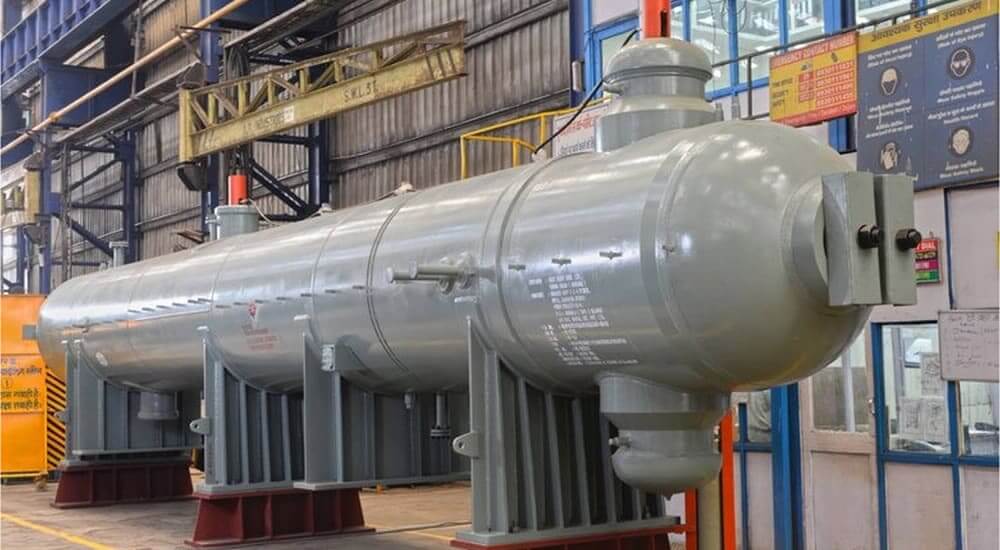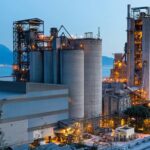Process equipment manufacturing
Quality process equipment manufacturing provides long-lasting and durable products. Each piece of equipment is carefully manufactured using the highest quality materials.
- Home
- Fields-of-activity
- Process equipment manufacturing
Our fields of activity
- Fertilizer (Dap)
- Sulfuric acid
- Phosphoric acid
- Ammonia plant
- Cement factory
- Sugar factory
- Feed factory
- Power plant
- Hydroelectric plant
- Process equipment
- Chemical factory
- Pharmaceutical factory
- Oil factory
- Industrial facility construction
- Structural steel fabrication
- Hydrogen Peroxide
- Propane Dehydrogenation
- Equipment design
Promotional brochure
Download our catalogue to see specific data about the service we provide and how we work.
Stay in touch!
Please feel free to contact us. We will get back to you within 1-2 business days. Or call us now.
Process equipment manufacturing
Process equipment is used in the integration of chemical or mechanical methods in various industrial applications including sulfuric acid plants, phosphoric acid plants, fertilizer plants, ammonia plants, sugar factories, cement plants, oil factories, thermal power plants, hydroelectric power plants, pharmaceutical factories, feed factories, water treatment, steam energy production, pipeline operations and disposal of salt water.
Process equipment frequently preferred in these sectors include pumps, valves, pressure vessels, atmospheric tanks, storage tanks, crushers, bucket elevators, vibrating screens, oriental screens, washing towers, cooling towers, ball mills, cooling drums, drying drums, filters, coolers, heat exchangers, vibration dampers and pipes, etc. Each piece of equipment has a critical role in the operation of the relevant process and therefore is of great importance. These process equipment included in our product inventory are examined in detail below.
We offer process equipment in various sizes and capacities to suit different industrial needs. We can also design products with special sizes and features for our customers. In this way, you can obtain equipment that is exactly suitable for your business needs.

Process equipment overview
Process equipment is used in a variety of applications such as water treatment, steam power generation, pipelines, salt water disposal, etc. where chemical or mechanical methods are applied. Examples of process equipment commonly used in these industries include pumps, valves, vessels, filters, coolers, heat exchangers, vibration dampers, and pipes. Each of these equipment is very important due to its indispensable use in the operation of a process. The process equipment that is part of the Power Zone inventory is detailed below.
Pumps
Pumps are widely used in various industries to serve the purpose of transporting different types of liquids, mainly water, chemicals, petroleum, wastewater, oil, mud, slurry or gas. The two main types of pumps are Centrifugal Pumps and Positive Displacement Pumps.
They can be further classified according to their other features and usage or applications such as multistage and single stage, multistage – horizontal, multistage – vertical, direct acting – air and steam pumps, Triplex pumps, Duplex pumps, Quintuplex pumps, metering pumps, double acting pumps, single acting pumps, piston pumps, gear pumps, lobe pumps, rotary pumps, screw pumps, vane pumps, multistage cavity pumps, peristaltic pumps etc. These are used in industries like oil and gas, agriculture, mining, municipality, manufacturing etc.
They are also used in various applications such as boiler feed water, pipeline, descaling, water supply, brine injection, water transfer, frac water supply, slurry, drainage pump, mud transfer, acid pumping, chemical fluid transfer, etc. Pumps are very important pieces of equipment used in industries and understanding the right pump for your application requires a thorough knowledge of the characteristics of each pump to suit your process requirements. For example, the best types of pumps for high viscosity fluids are positive displacement pumps.
Similarly, having an in-depth knowledge of pump parts will be very helpful in choosing a more reliable, efficient and durable pump. We work with various manufacturers such as National, Gardner Denver, FMC, SPM, Oilwell, Sulzer, Flowserve, Bingham, ITT Goulds and SPX, Rentzel, American Marsh with different types, sizes and specifications of pumps.
Filters
Industries use filters to remove unwanted substances from the main product during a process or application. Different types of filters are available in the market as per the requirements of the process such as air filter, hydraulic filter, panel filter, bag filter, screen filter, sand filter or gas filter. These perform the primary function of filtering or removing dust, purifying oil and fuel, removing debris and removing contaminants from a gas stream etc. Filters are generally used in the oil and gas industry.
They are available as a part of the entire pump package and make the disposal process easier, efficient and safer. One such example is brine disposal, which is of critical importance as gas and oil are harvested from porous rocks from which these fuels are extracted. Brine is a by-product and needs to be separated and further processed for proper disposal. Using conventional methods for filtration cannot facilitate cost-effective and efficient brine management, disposal and reuse. Therefore, filters are used to remove toxic oils and hydrocarbons from the product and ensure its safer discharge into the environment.
Valves
A valve is a device that regulates, directs, or controls the flow of fluids or gases, liquids, liquefied solids, or slurries. Valves are used in a variety of applications across industries including industrial, engineering, manufacturing, scientific, etc. Valves are available for high temperature and extreme pressure applications in a wide variety of designs including globe valves, gate valves, ball valves, knife valves, V-ball valves, butterfly valves, and more. Valves can come with simple hand levers or sophisticated air, hydraulic, or electric power actuators that can be connected to a PLC.
Storage tanks
A vessel is a container that can usually hold pressure. A tank is a container that usually holds liquid at low or no pressure. Because the pressure inside a vessel can pose a safety hazard, vessels are usually ASME stamped, meaning they are built to very strict standards set by the American Society of Mechanical Engineers. The following points should be considered when specifying a tank or vessel.
✓ Function to be performed/Application to be used
✓ Location to be stored
✓ Nature of liquid used
✓ Temperature level and pressure level
✓ Volume or capacity required
✓ Required codes and regulations
✓ Secondary containment requirements.
Open vessels are often used as surge tanks between operations, while closed vessels can facilitate operations that use toxic liquids/gases or hazardous chemicals.
Heat Exchangers
A heat exchanger is most commonly used in process equipment to transfer heat between liquids or from a solid to a liquid or vice versa. They are most commonly used in chemical plants, petrochemical plants, oil refineries, natural gas processing and sewage treatment. Double-tube heat exchangers are the most commonly used in industrial applications because they are simple, low-cost and low-maintenance. However, today, more efficient heat exchangers such as tube and shell or plate are used.
A person must carefully select the type and size of a heat exchanger to suit the process, depending on the type, phase, temperature, density, viscosity, pressure, chemical composition and various other thermodynamic properties of the liquid. Air coolers are another type of heat exchanger that transfers heat between a liquid and the ambient air. The most common form of this type of cooler is the radiator in a car or truck, where a fan draws air through tubes containing hot glycol to cool the engine. Air coolers can be used for small lubricating oil cooling or can be very large.
Shock absorbers
The primary purpose of a pulsation damper is to absorb system shocks by minimizing vibration, pipe pulsation, water hammer, and pressure surges in the pipeline. Mostly used in alternative pumps, these dampers help minimize overall wear and tear on the equipment and provide longer life. By creating a low-pressure area consisting of a membrane or compressible gas/air cushion, a pulsation damper absorbs the shock, maintaining constant pressure and smooth flow of fluid. Dampers used to balance pressures in a hydraulic system are often called Accumulators.
Piping
Piping is a comprehensive system of pipes used to transfer liquid/gas from one place to another. It is also a basic piece of process equipment used in all types of machines to connect all other process equipment together. It is usually made of metal or plastic and is in the shape of a tube. However, for special applications where pipes are frequently exposed to corrosion, high-pressure processes or high temperatures, non-metallic materials such as fiberglass, plastic, glass, copper, iron, stainless steel or aluminum are more suitable for use. Pipes that can withstand very high temperatures are often referred to as heat pipes and normally operate between 400 and 1,100 °C.
Elbows, T’s, flanges, couplings, unions, etc. are some of the most commonly used pipe fittings. Since the pressure in the pipes poses a serious safety hazard, great care and attention must be taken to design a safe and workable system. In the case of welded metal pipes, the manufacturer must usually be certified for the specific type of pipe they are producing, such as B-31.3, B-31.9, etc. There are a wide range of NDE (non-destructive testing) tests available to ensure pipes are safe and fit for use. These NDE tests include XRAY, Hydrotest, Mag-particle, Ultrasonic and more.


